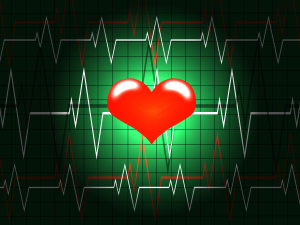Here is another great post from one of our, Featured Doctors , containing a surprise on one of the big culprits behind heart disease. Please take a moment to read over the post, and add to your natural immunity resources.
Cholesterol often wrong target in heart disease risk 
By Dr Flannery
Everyone has heard that high cholesterol is bad for heart health. But as it turns out, the association between cholesterol and cardiovascular disease has been somewhat misrepresented. Doctors are starting to accept that cholesterol levels do not necessarily predict risk for heart disease as much as we thought. Consider the following:
75 percent of people who have heart attacks have normal cholesterol.
Older patients with lower cholesterol have a higher risk of death than those with higher cholesterol.
Countries with higher average cholesterol than Americans such as the Swiss or Spanish have less heart disease.
Recent evidence shows that it is likely statins’ ability to lower inflammation that accounts for the benefits of statins, not their ability to lower cholesterol.
We need cholesterol!
Cholesterol is a fat-like substance found in every cell in the human body. The liver makes 75 percent of cholesterol. Cholesterol helps produce cell membranes, vitamin D, and vital hormones, and is needed for neurological function. Put bluntly, we would die without it.
The cholesterol players
When we measure cholesterol levels, we are actually measuring the lipoproteins LDL and HDL. We refer to them as cholesterol, but they are actually small packages of fat and protein that help move cholesterol throughout the body.
High-density lipoprotein — HDL
This is considered “good” cholesterol. It helps keep cholesterol away from your arteries and removes excess arterial plaque.
Low-density lipoprotein — LDL
This is considered “bad” cholesterol. It can build up in the arteries, forming plaque that narrows the arteries and makes them less flexible (atherosclerosis).
Also important are:
Triglycerides
Elevated levels of this dangerous fat have been linked to heart disease and diabetes. Levels rise from eating too many sugars and grains, smoking, being physically inactive, excessive drinking and being overweight.
Lipoprotein (a) or Lp(a)
Lp(a) is made up of an LDL part plus a protein (apoprotein a). Elevated Lp(a) levels are a very strong risk for heart disease.
When testing cholesterol, total cholesterol is not as important as:
Levels of HDL “good” cholesterol versus LDL “bad” cholesterol
Triglyceride levels
The ratio of triglycerides to HDL
The ratio of total cholesterol to HDL
In order for cholesterol to cause disease, it has to damage the arterial walls. There are small and large particles of LDL, HDL, and triglycerides. Large particles are practically harmless, while small, dense particles are the dangerous ones, lodging in the arterial walls, causing damage and inflammation. The resulting “scar” is called plaque. Repeated trauma causes a buildup of plaque and chronic inflammation while your risk of high blood pressure and heart attack increases.
The biggest culprits in high cholesterol? Sugar and bad fats!
Although we’ve been taught that a high-fat diet causes problems with cholesterol, the type of fat you eat is more important than the quantity. Trans fats, or hydrogenated and saturated fats, promote abnormal cholesterol, while omega-3 fats and monounsaturated fats actually improve the type of cholesterol in our bodies. Eat your good fats, your body needs them!
The surprise: the biggest source of abnormal cholesterol isn’t dietary fat, but sugar. Sugar (and refined carbs, including processed white foods), drives good cholesterol down and triglycerides up. It causes those small particles, encouraging dangerous plaque buildup, and can lead to heart disease and metabolic syndrome or “pre-diabetes.” Doctors are starting to admit that sugar, not dietary fat, is the bigger cause of most heart attacks.
So, the real concern isn’t really the amount of total cholesterol you have, but the type of fats, sugar, and refined carbohydrates in your diet that lead to abnormal cholesterol production.
Inflammation promotes heart disease
Systemic inflammation plays a key role in heart disease and, in fact, most all chronic illnesses. Systemic inflammation can arise from poor diet, a sedentary lifestyle, stress, allergies, and more. Research at Harvard has shown that people with high levels of systemic inflammation (measured by a test called C-reactive protein, or CRP) had higher risk for heart disease than those with high cholesterol, while normal cholesterol was not protective to those with high CRP.
Clearly, multiple factors come together to determine your risk for heart disease, including diet, lifestyle, and environment. If you are concerned about your heart health, contact my office for a comprehensive evaluation to help reveal the factors that may increase your risk for heart disease.
HealthWise Clinical Nutrition


 You don’t have to be a doctor or even a parent to notice the increasing number of children shouldering heavy diagnoses. Conditions like ADHD and autism are far more common now than they were just a few decades ago. While some of this could be attributed to Big Pharma’s need for a greater demand (and conventional doctors answering that call in kind), to ignore the potentially disastrous effects of common pesticides, solvents, and other toxins in our world would be remiss.
You don’t have to be a doctor or even a parent to notice the increasing number of children shouldering heavy diagnoses. Conditions like ADHD and autism are far more common now than they were just a few decades ago. While some of this could be attributed to Big Pharma’s need for a greater demand (and conventional doctors answering that call in kind), to ignore the potentially disastrous effects of common pesticides, solvents, and other toxins in our world would be remiss.